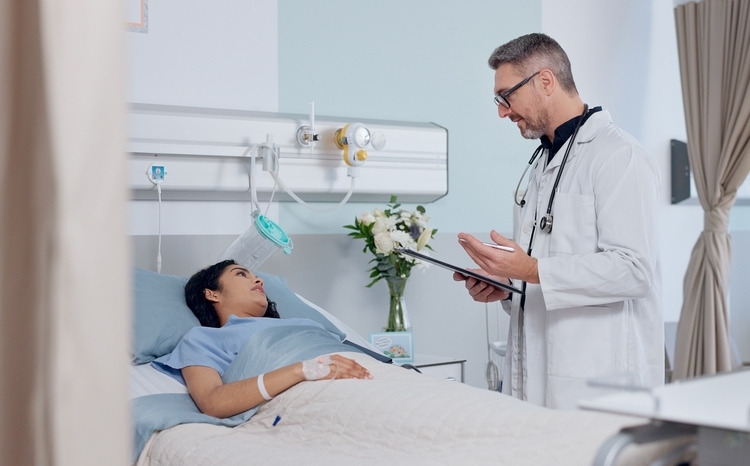Artificial intelligence spots infections among dementia patients in Surrey

New artificial intelligence (AI) could keep older people with dementia out of hospital by monitoring their condition remotely.
The University of Surrey has developed technology that can identify and help reduce the occurrence of urinary tract infections (UTIs), the most common cause of hospital visits among older people.
In an NHS clinical trial, scientists from the university’s Centre for Vision, Speech and Signal Processing (CVSSP) used a type of algorithm to look for signals for possible infections.
They then used machine learning algorithms to identify early symptoms of urinary tract infections, based on the signals already found.
The study was part of the second stage of the Technology Integrated Health Management (TIHM) for dementia project, led by Surrey and Borders Partnership NHS Foundation Trust.
The project, which is part of the NHS Test Beds Programme, was awarded an extra £1 million from NHS England and the Office for Life Sciences last year after an initial trial showed a “significant statistical reduction” in neuropsychiatric symptoms in the 400 participants involved in the project.
TIHM aims to support people living with dementia by helping clinicians identify health problems before they require a hospital visit.
It uses a network of internet-enabled devices installed in the home in combination with a machine-learning system, which together can indicate when an individual with dementia needs support.
A recent study in the journal PLOS ONE found the algorithms were able to detect a rise in body temperature and night time activity in a patient, successfully leading to a diagnosis of urinary tract infection.
Data streamed from devices in the patient’s home, including monitoring sensors and devices tracking vital signs, were analysed by machine learning techniques and health problems were flagged on a digital dashboard to be followed up by the clinical team.
Payam Barnaghi, professor of machine intelligence at CVSSP, said: “We have developed a tool that is able to identify the risk of UTIs so it is then possible to treat them early.
“We are confident our algorithm will be a valuable tool for healthcare professionals, allowing them to produce more effective and personalised plans for patients.”
Professor Adrian Hilton, Director of CVSSP, added: “Machine learning could provide improved care for people living with dementia to remain at home, reducing hospitalisation and helping the NHS to free up bed space.”
Early results of neuropsychiatric trials last year indicated patients involved in the trial demonstrated lower levels of depression, agitation, anxiety and irritability.
The in-home devices can also identify if a patient has high blood pressure, is dehydrated or has wandered from home.
‘First of kind’ programme
TIHM for dementia was launched in September 2016 and is part of the NHS Test Beds programme.
The study received £4.4 million funding for the first phase and is receiving £1.08 million for the second phase.
According to Surrey and Borders Partnership, it is the first programme in the UK and internationally to use an internet of things (IoT) intervention system to support the management of dementia in the community.






1 Comments
“Digital Health” + AI + VR + IoMT + CEO +Co Founder. The war on Alzheimer (AD) and Age macular degeneration (AMD) should begin with the discovery of diseases as early as possible
I have the solutions and the team to develop these ideas
Israel Manela (optometrist)
Comments are closed.